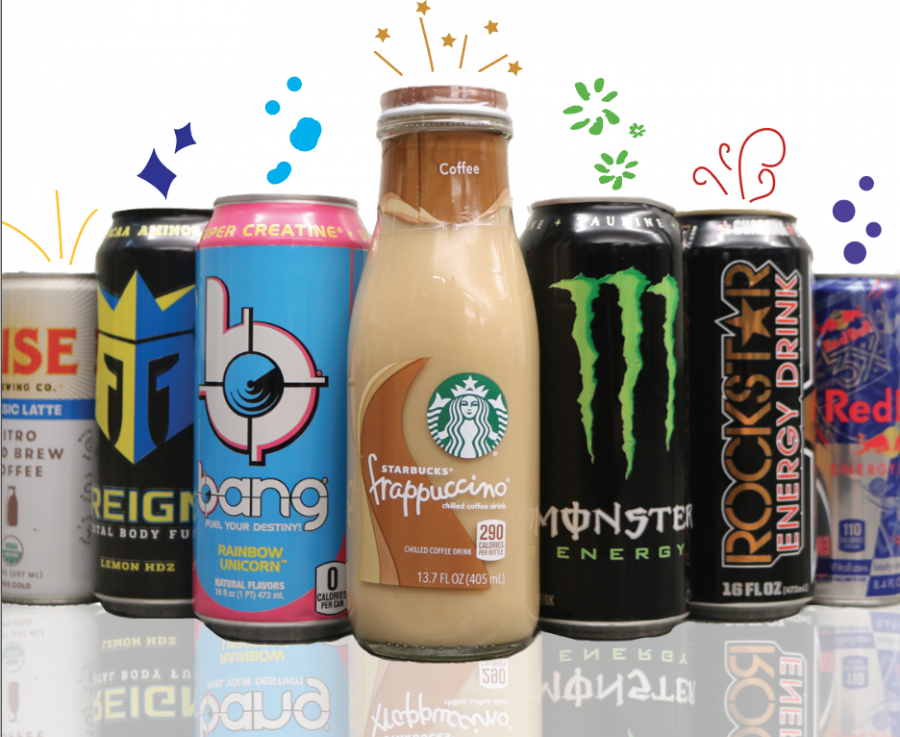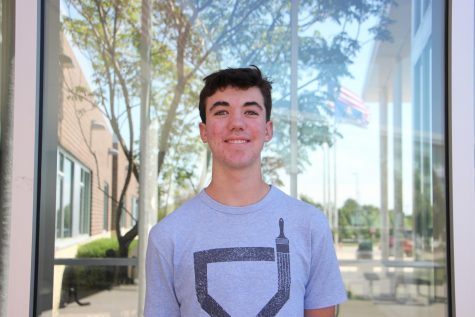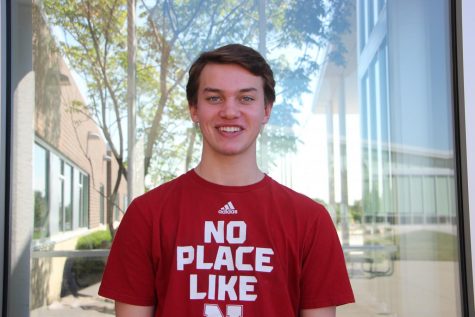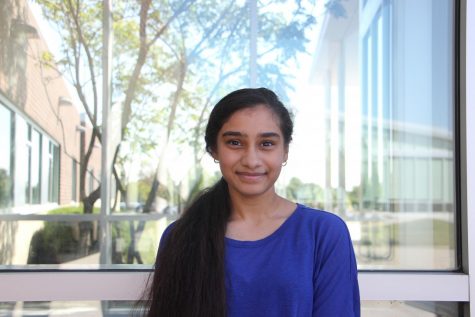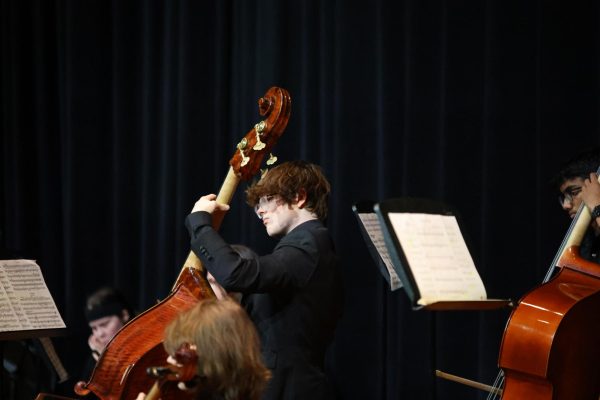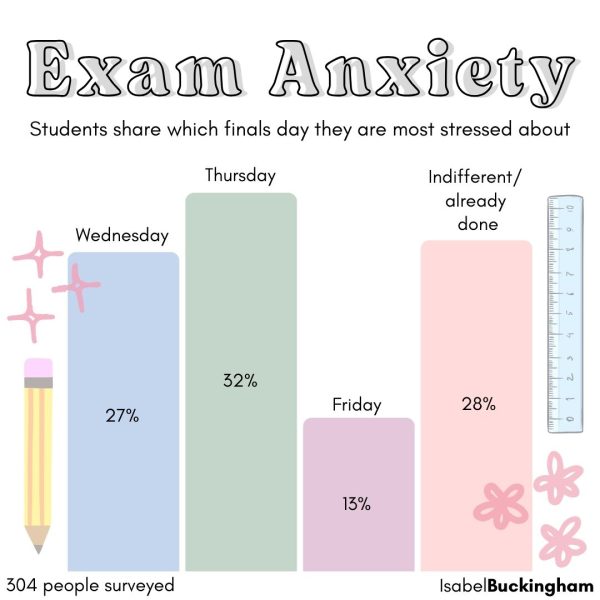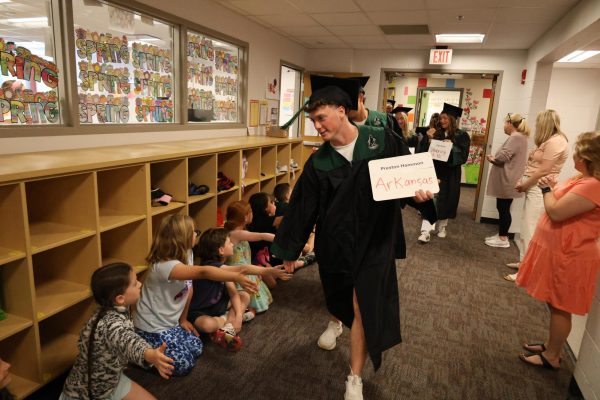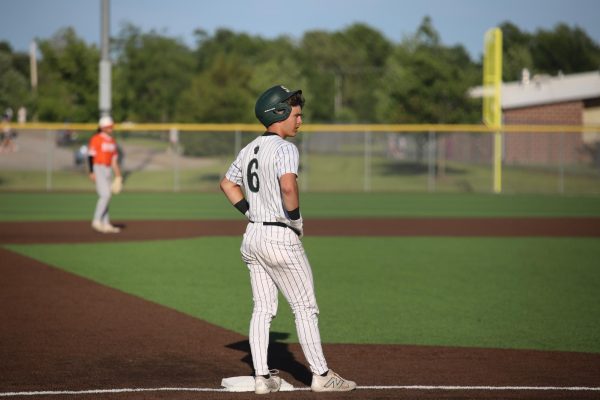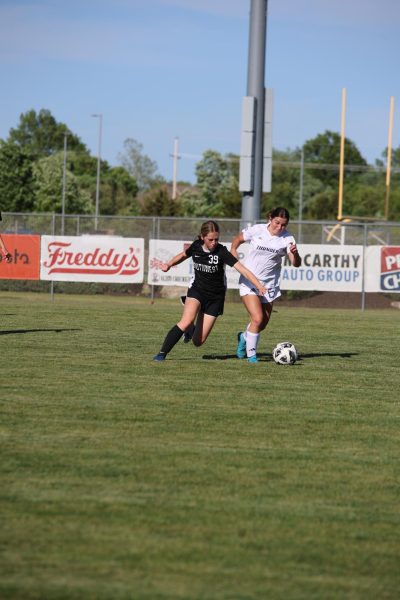Caffeine craze: caffeine addiction is a growing problem among students
Caffeine addiction has been recognized as a growing problem among students.
Starting off Monday morning, senior Maddie Pieropan grabs a cup of coffee on her way to school. Pieropan said she believes strongly in the idea that caffeine addiction is a real thing, and happens to students at school, like herself.
“I do need to drink caffeine to keep myself awake in some way, shape or form, so maybe I have a little bit of caffeine addiction,” Pieropan said.
According to a study performed by sciencedirect.com, 79% of teenagers reported drinking caffeine for energy, but some would disagree on whether it is necessary.
Band director Brandon Lesando said teenagers should not be co-dependent on caffeine because of their already high energy levels.
“A lot of students have enough natural energy because they’re younger. They don’t really need caffeine, but they rely on it,” Lesando said. “ I feel like it’s sometimes doubling down on something they don’t really need.”
Teens can also become reliant on caffeine because of the marketing approaches taken by companies and the addition of caffeine to popular drinks. Junior Matt Claar said he thinks this is a good addition to drinks like Sparkling Ice+caffeine in the lunch room.
“Sparkling Ice is a household name, a lot of people buy them, but when they made their caffeinated version, it just got better because they’re making more money and people already love Ice so when you add the boost, it just gets better,” Claar said.
Because of the popular flavors and appeal to teens, many do not even think of caffeine as anything different than a normal drink. Bang and C4 are other popular energy drinks that claim themselves healthier.
“I usually drink pre-workout such as Bang or C4 because those are better for you, which they’re really not,” Claar said. “I wouldn’t say they’re like, amazing for you, but they’re a lot better than Monster is for you, so I tend to drink those now.”
According to its nutrition label, one can of Bang contains approximately 300 mg of caffeine, while according to kidshealth.org, the recommended amount of caffeine for a teenager daily is 100 mg. When teens drink this much caffeine in one day, the effects could be detrimental, and result in a lifelong reliance on caffeine. According to kidshealth.org many people think Monster is a source of energy, but Claar said it has the opposite effect.
Common side effects of caffeine according to uofm.org for people 12-18 include agitation, increased anxiety, headaches, dehydration and dizziness to name a few.
“When I didn’t have caffeine, I had headaches,” Claar said. “I was really dizzy and I was really really tired and when I drink [caffeine], I feel normal.”
Freshman Mackenzie Wassinger said when she doesn’t drink caffeine, her mood is typically worse in the mornings.
“I drink it so often that I notice that my mood is usually worse when I don’t drink it,” Wasinger said. “I feel emptier than usual. When I drink coffee in the morning, I usually end up having a better day. If I don’t have it, I’m more sluggish in the morning.”
Some teens depend on caffeine because of their schedules. Pieropan said she thinks teenagers drink caffeine not out of choice, but because they need it to get through their daily life.
“Being a real human being, plus school, plus having time to do things that you want to do, literally requires you to drink caffeine so that you can maximize the number of hours you can be awake during the day,” Pieropan said. “Because 24 hours just is not enough.”
According to kidshealth.org, drinking caffeine may cause harm to a teen’s physical health, but many teenagers claim it makes them feel better than going without.
“When I have caffeine, I feel more alive. I feel like I’m finally awake and I’m finally ready to take on the day. I just feel better in general, happier in a way,” Pieropan said. “When I don’t have caffeine, I usually just don’t feel as good.”
In reality, caffeine can be harmful to the mental and emotional health of teenagers. According to verywellhealth.com, teenagers can become dependent on caffeine and without it, can experience withdrawal. Wassinger said she notices this in some of her peers at school.
“There are people all around me who have headaches, are really tired and are super cranky when they don’t have coffee and usually do,” Wassinger said. “It’s like a withdrawal.”
For energy drinks like Bang, FDA approval is uncharted territory. While Bang is technically approved, according to thestack.com, the qualifications are loose. Lesando said he worries about new caffeinated drinks being unsafe for teenage consumption.
“Our laws aren’t always caught up to date with the things that are happening,” Lesando said. “I fear that with that kind of looseness, and the regulation of what can just be put on shelves before it’s actually proven to be okay by the FDA, it is probably something that needs to be looked at.”
Not only are energy drinks insecurely regulated, the amount at which teens drink is considered unhealthy based on the 100mg daily suggestion.
“I have my morning coffee and then I drink a Red Bull in the middle of the day,” Pieropan said. “And then I usually have either tea or coffee after school, so probably like I average around three [servings].”
Caffeine at this capacity is the new normal, and when teenagers start drinking caffeine, it can be hard to stop. Pieropan said, even when she is suffering from the effects of caffeine, she still needs to drink more.
“Sometimes when I’m really tired and I’m functioning on a lot of caffeine, at least for me, I tend to get really anxious and jittery,” Pieropan said. “If I’ve had a lot of caffeine and drank a bunch of Red Bulls, I wake up tired and just drink more caffeine. I end up feeling worse that day. I feel groggy and not really able to concentrate and just really anxious the entire day, but I need it otherwise I won’t be able to function.”


